There's something eerie about a cloudy day in June.
Even missing the 100-kilometre-per-hour winds and wild surf, a dreary June day in Newcastle has a way of conjuring up grey memories of that winter storm.
Ask any local on the street and chances are they'll tell you where they were on June 8, 2007 when the massive 76,000-tonne Pasha Bulker ran aground on Nobbys Beach in a wild tempest of fierce seas, roaring gale winds, and pounding rain.
That month is still one of the wettest on record for Newcastle, as nearly half a metre of rain fell over Nobbys Head, eclipsing the Bureau of Meteorology's 161-year average for the month more than four times over.
The city had woken up to a rotten morning. The beaches were pummelled by a merciless swell, whipped under tearing winds and a pouring rain.
Veteran newsman Greg Wendt was waiting in the gale for his morning coffee at the Merewether Surf Club when he caught word of a ship might have been in trouble off the coast.
As he made his way into work at the Newcastle Herald offices, the phones were ringing off the hook. The Pasha Bulker had been fighting her way up the coast, battered by a 10-metre swell.









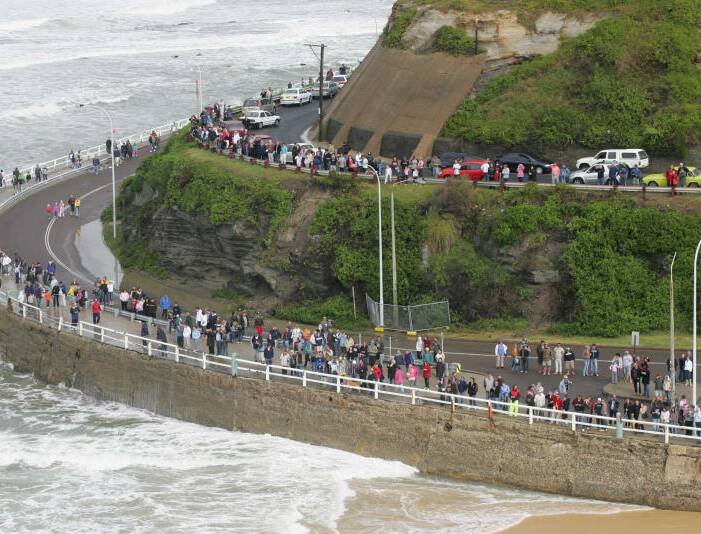
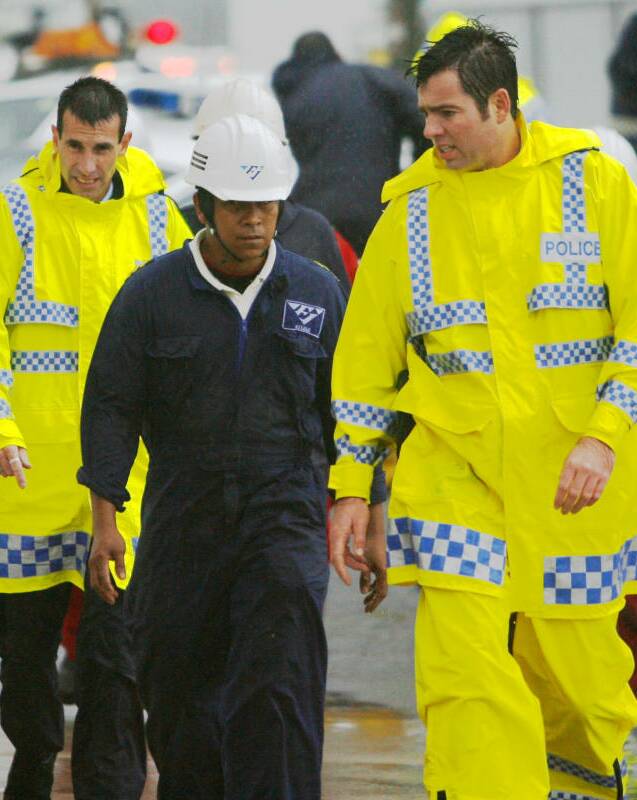











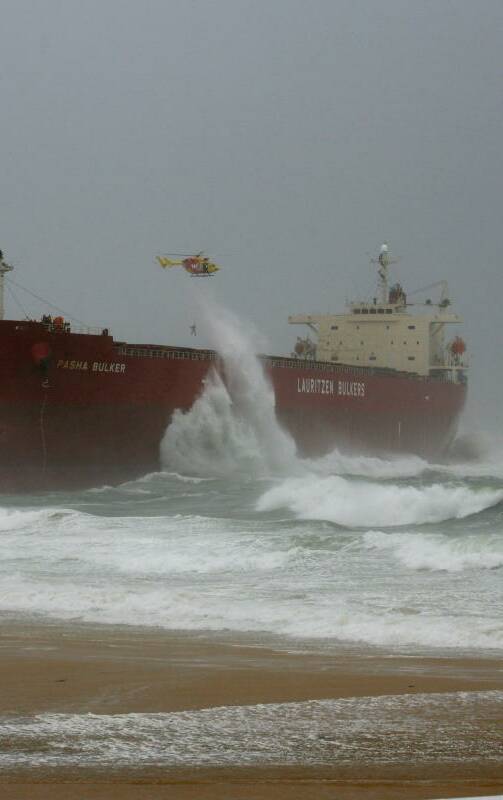
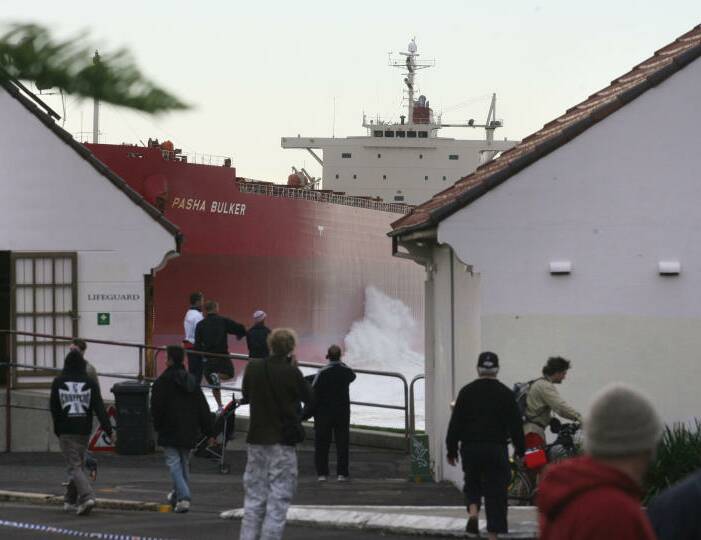

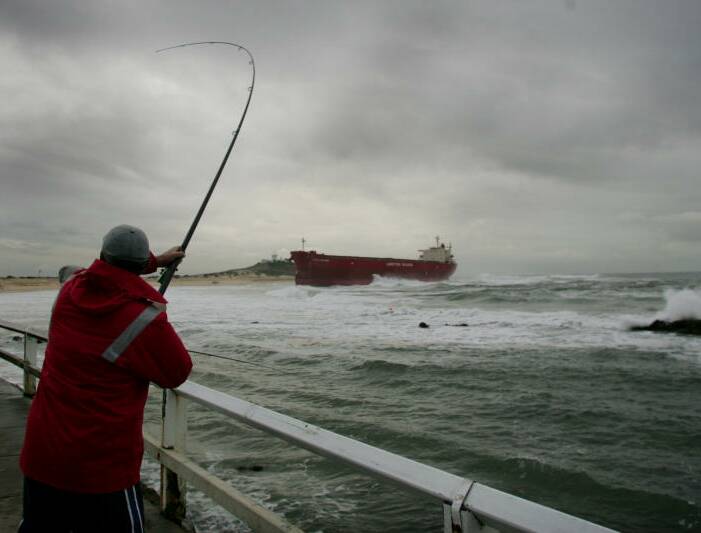










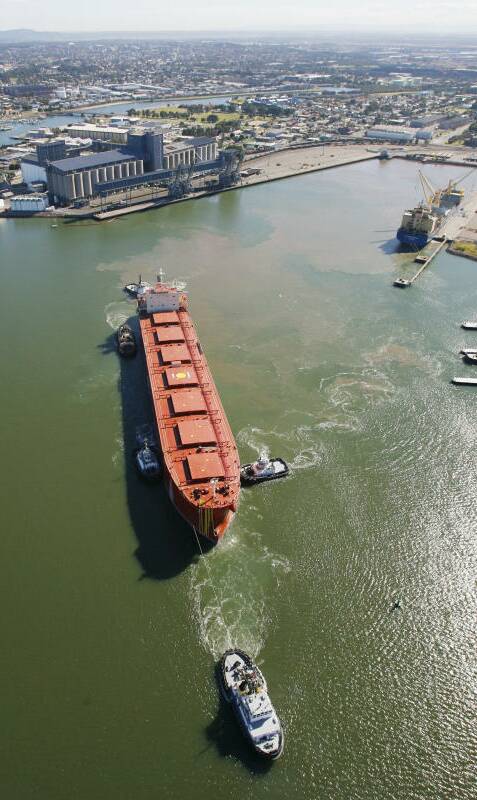

































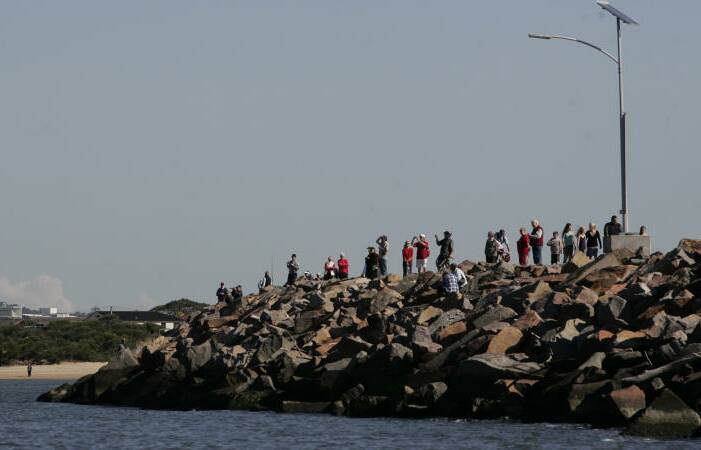




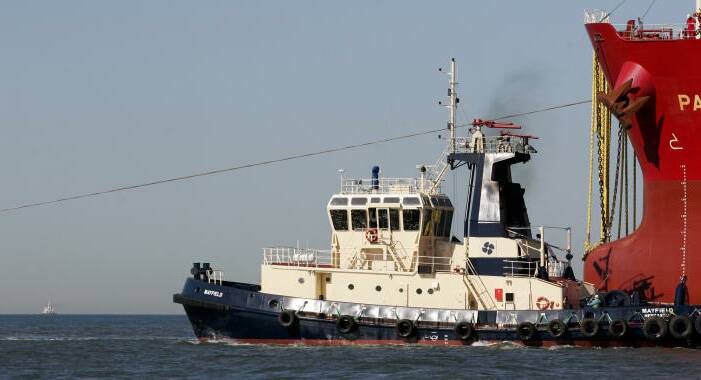



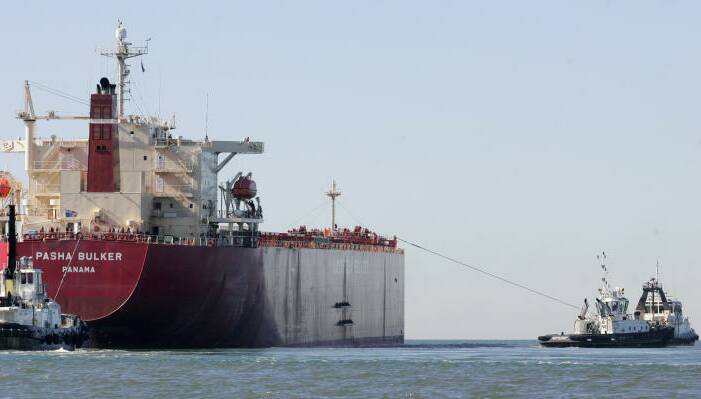














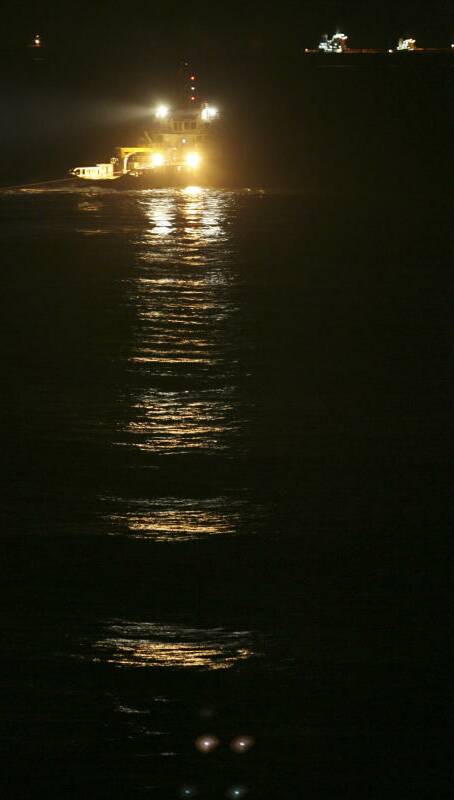










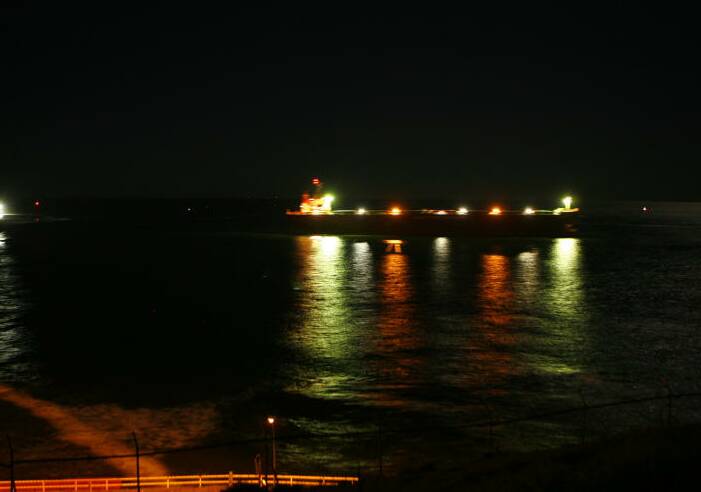





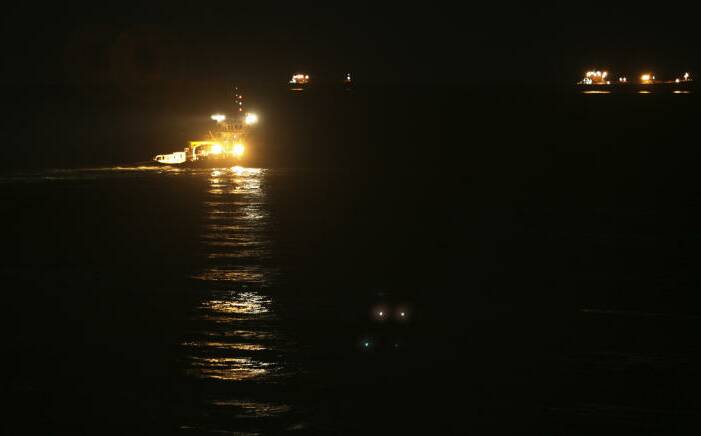





















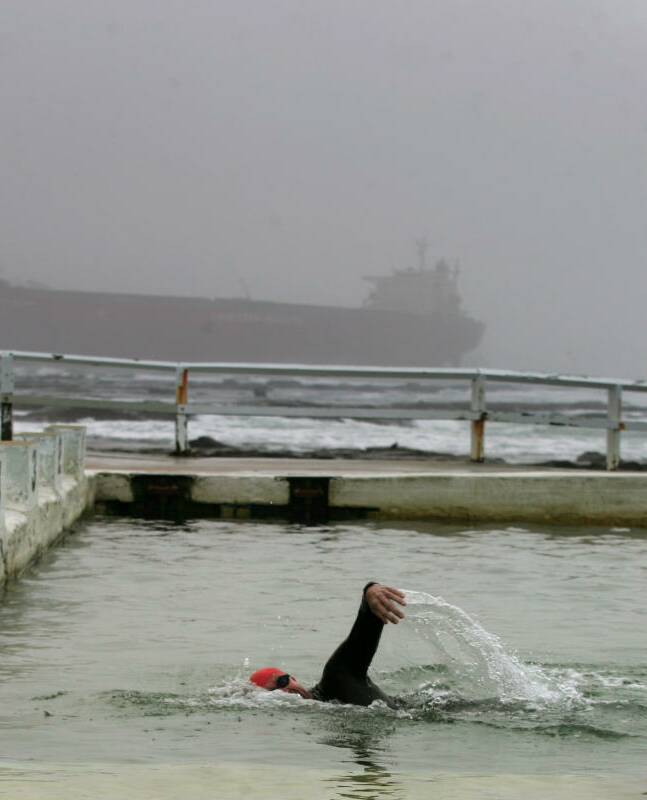















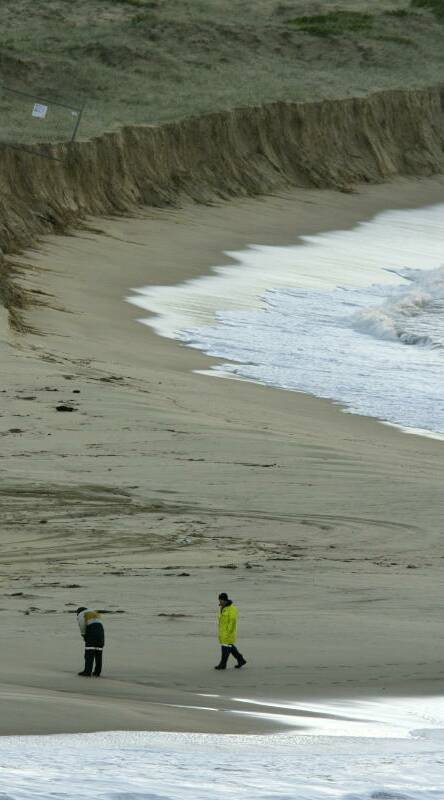










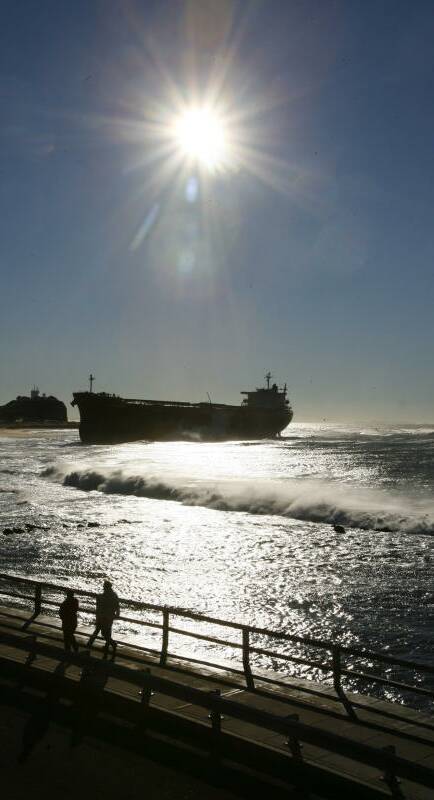





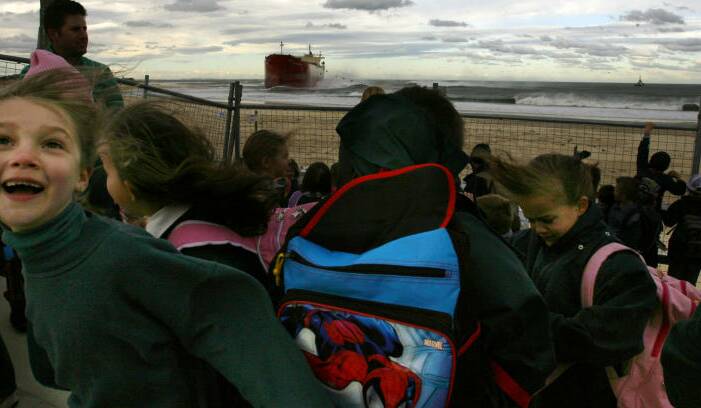
























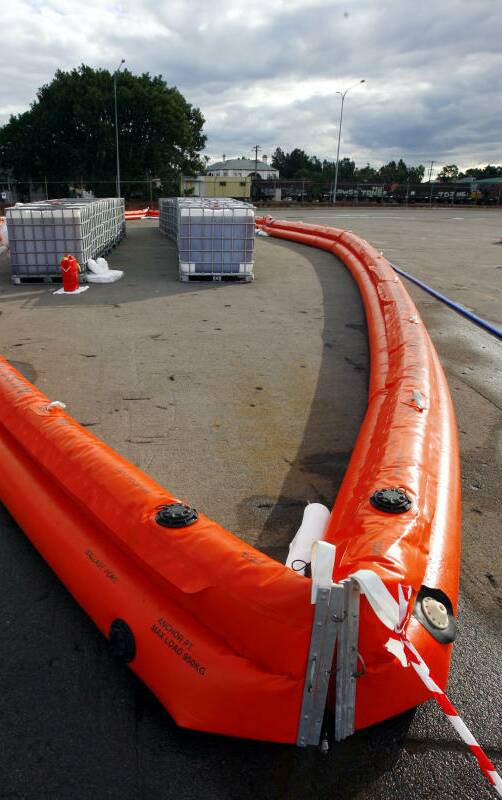








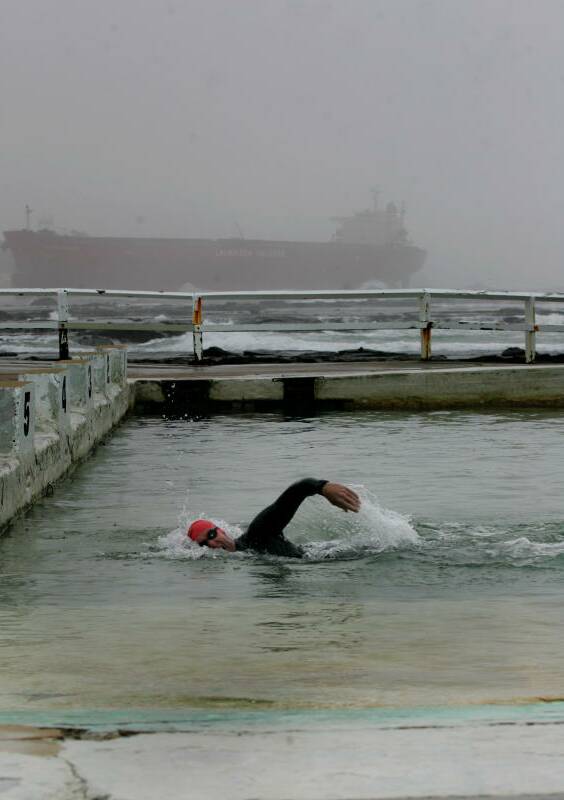














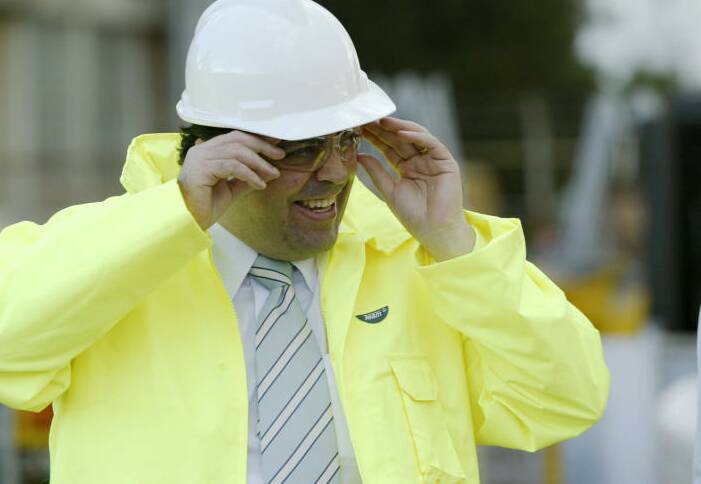





























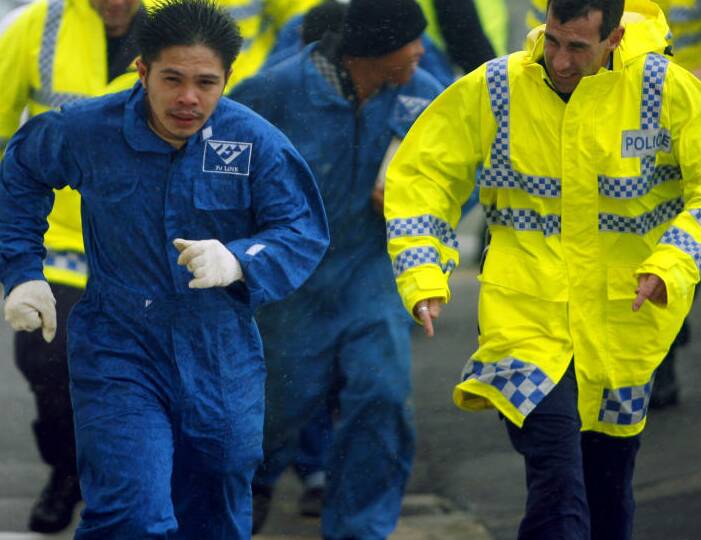




























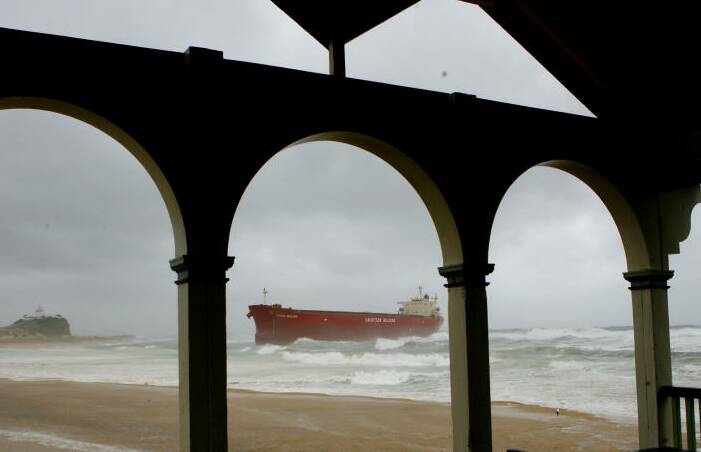


The ship was unloaded and sitting high in the water, and her captain was fighting hard to get the propeller to find purchase.
By the time Wendt arrived on the waterside with photographer David Wicks, the untethered ship was floundering.
"The captain of the ship was trying to reverse it and then jerk the bow into the teeth of the storm, so he was reversing down towards Nobbys," Wendt reported for the paper on the 10th anniversary of the storm.
"There is a great shot that (former Herald photographer Darren Pateman) got of the Pasha Bulker being hit by a wave and was bent almost over the rocks at the Cowrie Hole.
"I thought that's where it is going to end up. But it kept going in reverse towards Nobbys at a rate of knots.
"This wave just swamped it and all you could see was a bit of the funnel and a little bit of the bow and then it disappeared in the murk towards Nobbys.''

The ship ultimately ran aground on Nobbys Beach as its crew sheltered together inside the swaying 225-metre vessel, before they were rescued from the deck by a pair of Westpac Rescue Helicopters.
Notably among them, crewman Greg Ramplin, who could be seen descending into the tempest's teeth countless times to winch the crew to safety, and veteran lifeguard Warren Smith who leapt on board a jet ski with a few fellow surf life savers to brave the ocean and patrol from the water.
After 90 minutes, the extraordinary rescue - which continues to be lauded as one of the great maritime operations - was over. Ramplin collapsed, utterly spent, on the sodden turf outside the surf club.

The dramatic events of June 8 preceded more than a year of investigation and scrutiny by the national transport watchdog, which finally found the bulk of blame for the grounding rested on the ship's master, who either failed or didn't properly understand how to ballast the ship for bad weather.
The investigation, which prompted significant changes to the Port of Newcastle's arrival and vessel queuing protocols, found that the majority of the 27 ships, including the Pasha Bulker, that had tried to ride out the storm in the port's coal queue dragged anchors in the gale before the Pasha's master attempted to haul anchor and adjust the ship's course ultimately leading to the grounding just after 9am.
"A number of masters did not appropriately ballast their ships," investigators concluded in 2008, among a litany of findings and recommendations.
"It was also found that the substantial ship queue increased the risks in the anchorage and resulted in another near grounding, a near collision and a number of close-quarters situations at the time."
The Japanese-owned ship was renamed Drake for a time and then Anthea in 2018 and was in the Agean on Thursday, the 16th anniversary of the grounding, en route to Egypt.







